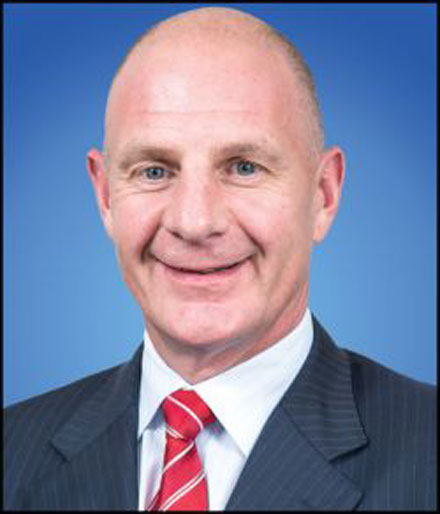
Peter Gutwein
Battlelines have been drawn for Tasmania’s next round of environmental conflict as the State Government said it would seek sources for special species timber in areas including conservation reserves. Source: The Mercury
Angry that the Tarkine could be high on the list for future logging, conservation groups have vowed a campaign of political and direct action — reviving the long-running but recently dormant forestry wars.
Forestry Minister Peter Gutwein said a resource assessment would be carried out on all of the land outside of the Tasmanian World Heritage Area, after a UNESCO report ruled out forestry inside the area’s boundaries.
The search would include inside 400,000ha of potential future forest production land, including areas designated as being of high-conservation value and reserves.
The Government also would accelerate research on recovering wood from lakes flooded as part of hydroelectric schemes, he said.
“The special species timber industry in Tasmania is an important part of the cultural fabric of this state,” Mr Gutwein said.
“We will continue to work through that to make sure that we understand what the availability of the resource is outside to the TWHA area.
“We will work through and understand what the resource availability is and then we will have the discussion about where we will take wood from.
“We’re also conducting a demand side analysis in respect of the special species industry as well to understand very clearly what the market wants from this industry and that will form a part of the framing of the special species management plan as well.”
Timber worker Pavel Ruzicka, who is the special species representative on the ministerial advisory council, said the industry played a vital role in Tasmania.
“I’ll make no beefs about it, the report is extremely disappointing from the point of view it didn’t take into account what we as an industry recommended to them,” Mr Ruzicka said.
“We just have to move forward from that and just look at what we have remaining and if that happened to be pressure on other parts of the land well then; I’m not going to point the finger at anyone, but they know who they are.”
Long-time conservationist and former Australian Greens leader Bob Brown said the protection of Tasmania’s reserves would become a federal election issue.
“My Foundation for one will do everything it peaceably can to prevent these forests from being bought back to the chopping block with apparently the complicity of Prime Minister Turnbull,” he said.
“They’re not going to undo reserves, including the Tarkine; they face stiff public opposition.”
He criticised the special species timber lobby for standing by in the era of broadscale native forest clearfelling.
“Where were you when million of tonnes of speciality timbers, myrtle, sassafras, a whole range of these timbers, was incinerated in the woodchip export bad days?” he asked.
“We fought against that all the way down the line, we said they were destroying these speciality timbers. Where were those people then?”
Greens leader Cassy O’Connor said logging in conservation reserves was unacceptable.
“It’s really clear there’s a shortage of special species timbers in accessible areas in Tasmania, there is no excuse for government or for the industry to be lobbying to get those trees out of areas which are protected because they can’t get into the World Heritage area,” she said.
“Going into the rainforests in the Tarkine to take special species timber for an industry that stood by while their resource was being clear-felled and wood chipped is unacceptable.”
Tasmania’s Aboriginal community highlighted sections of the UNESCO report that were critical of their level of involvement in the management and future of the WHA.
Tasmanian Aboriginal Centre secretary Trudy Maluga said the report was a “timely reminder to the Tasmanian Government that it is still under international scrutiny for its handling of the cultural and natural values of the area”.
“Joint management of the area with the Aboriginal community must happen sooner rather than later and we ‐ welcome the opportunity for this greater involvement as recommended by the international delegation,” she said.
“We remain ready to undertake the cultural values’ assessment as we were last year.
“The Government has lost yet another year by keeping Commonwealth funds and governance of the project for itself.”







